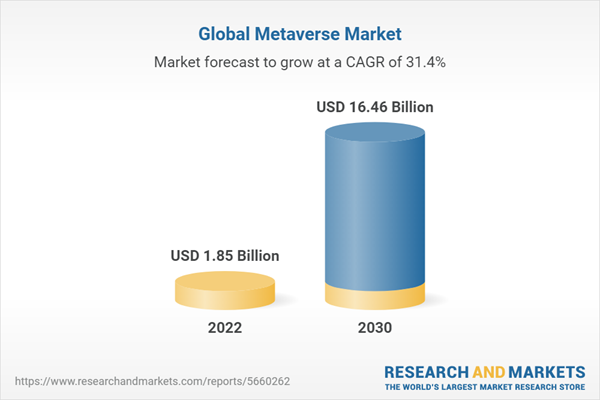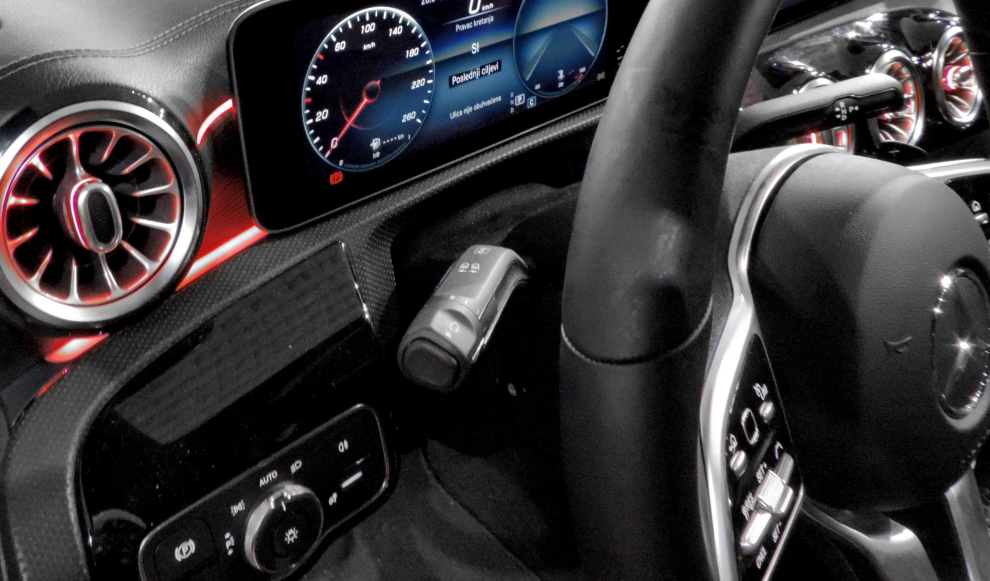Dublin – The global metaverse market for automotive is projected to grow from USD 1.9 Billion in 2022 to USD 16.5 Billion by 2030, at a CAGR of 31.4%. The concept of digital twin factories and virtual showrooms in the virtual space is in trend among automotive OEMs and dealers at present and has triggered the growth of the automotive metaverse industry.
Many software companies and startups have developed AR/VR technologies and are still doing research and development towards the incorporation of metaverse applications in the automotive sector. Users and customers are showing their interest in the NFTs and crypto to be used in the asset marketplace in the virtual space.
Metaverse technologies have made things much more convenient in the field of simulation and testing the vehicle. The metaverse market for automotive is dominated by established players such as NVIDIA (US), Roblox Corporation (US), Unity Technologies (US), Meta Platforms Inc. (US), and WayRay (Switzerland). They develop products and provide service offerings for the automotive metaverse ecosystem.
Advertisement applications to be leveraged at a higher level by automotive manufacturers and dealers during the forecast period.
Many automotive manufacturers and dealers have leveraged metaverse technologies to showcase their products in virtual space. OEMs have leveraged NFT releases, new product launches (of automobiles), virtual marketing events, and other resources. Meta, for instance, has been selling virtual billboards as part of its metaverse. The company has allowed dealerships to sell cars directly through its online platform and allowed digital purchase rights of virtual estates for showrooms. Many local dealerships across regions have leveraged this platform. With the rising usage of metaverse, the market for advertising in the metaverse will grow exponentially, with companies finding new ways to advertise on these platforms. The concept of virtual showrooms has grown rapidly across the automotive industry, where companies can advertise their products virtually without leveraging actual cars. The company plans to reduce costs by launching its cars only in the virtual space.
North America is likely to be the largest market during the forecast period.
North America has the largest metaverse market for the automotive industry. Software is expected to be the largest segment in this region, with top software and metaverse platform providers like Roblox, Unity Technologies, Epic Games, Upland, and Sandbox, among others, present in this region. The presence of top metaverse hardware providers like Microsoft, Meta, NVIDIA, and Qualcomm, among others, and a large part of the population using metaverse will make this the largest metaverse market for automotive. The US is expected to lead the market in this region due to the presence of most metaverse ecosystem providers in the country. Metaverse software and platform providers like Roblox (US), Unity Technologies (US), Upland (US), Sandbox (US), and Epic Games (US) have been key players in this region. These companies have been working with OEMs to provide software for the metaverse market for automotive. Roblox and Unity Technologies have worked with Hyundai for metaverse solutions. Similarly, Ferrari has worked with Epic Games for its metaverse offering for digital assets.

Premium Insights
- OEM Shift to Metaverse-based Advertisements to Drive Market
- Software to be Largest Segment
- MR to Grow at Faster Rate
- Virtual Platforms/Spaces to Occupy Largest Share
- Advertising to Lead Market During Forecast Period
- North America Projected to be the Largest Market
Market Dynamics
Drivers
- Brand Promotions for Automotive OEMs Using Gamification
- Growing Demand for Automobile Simulators in Related Industries
- Availability of Affordable Hardware
- Use of Metaverse in Automotive Design
- Wider Adoption of AR/VR Across Industries
Restraints
- Installation and Maintenance Cost of High-End Components
- Health and Mental Issues from Extended Use
Opportunities
- Incorporation of Metaverse in Automotive Infotainment
- Continuous Developments in 5G and Higher Band Technologies
- Virtual Experience as a Trial Before Buying Automobiles
Challenges
- Cybersecurity and Privacy Challenges
- Local Government Restrictions with Environmental Impact
Key Topics Covered:
1 Introduction
2 Research Methodology
3 Executive Summary
4 Premium Insights
5 Market Overview
6 Metaverse Market for Automotive, by Offering
7 Metaverse Market for Automotive, by Product
8 Metaverse Market for Automotive, by Technology
9 Metaverse Market for Automotive, by Application
10 Metaverse Market for Automotive, by Region
11 Competitive Landscape
12 Company Profiles
13 Analyst’s Recommendations
14 Appendix
Companies Mentioned
- Aston Martin
- Automotive OEMs
- BMW Group
- Carcivic
- Carzso
- Decentraland
- Epic Games
- General Motors
- Holo-Light
- Holoride
- Honda Motor Company
- Hyperlink Infosystem
- Hyundai Motor Company
- Infiniteworld
- Jidu Auto
- Mercedes-Benz AG
- Meta Platforms Inc.
- Metavrse
- Mg Motors
- Microsoft
- Nissan Motors
- Nvidia
- Oxbotica
- Qualcomm
- Roblox Corporation
- Sandbox
- Somnium Space
- Sony Corporation
- Tata Motors
- Tech Mahindra
- Terranet Ab
- Toyota Motor Corporation
- Unity Technologies
- Upland
- Varjo
- Volkswagen AG
- Volvo
- Wayray
- Xr Labs
Source: Research and Markets





